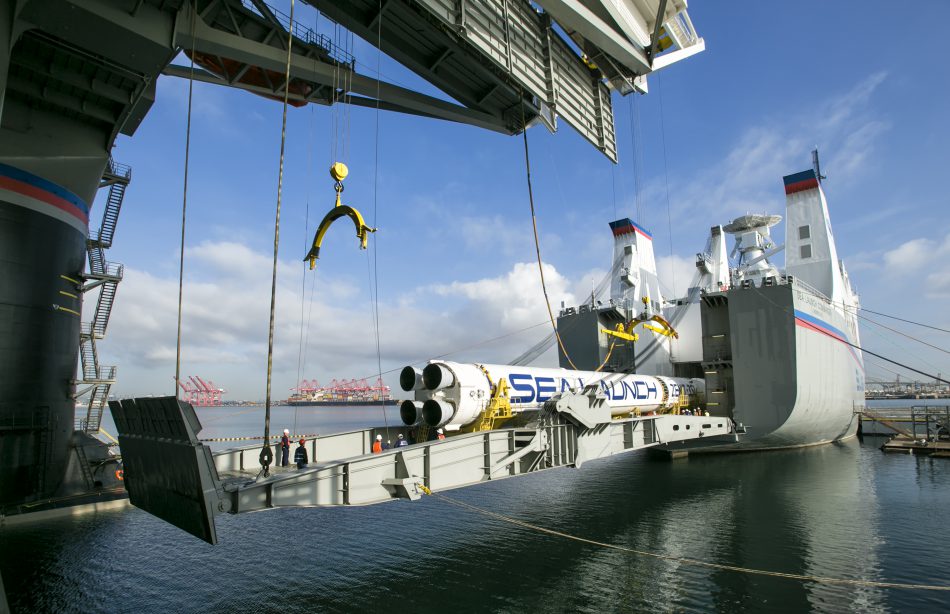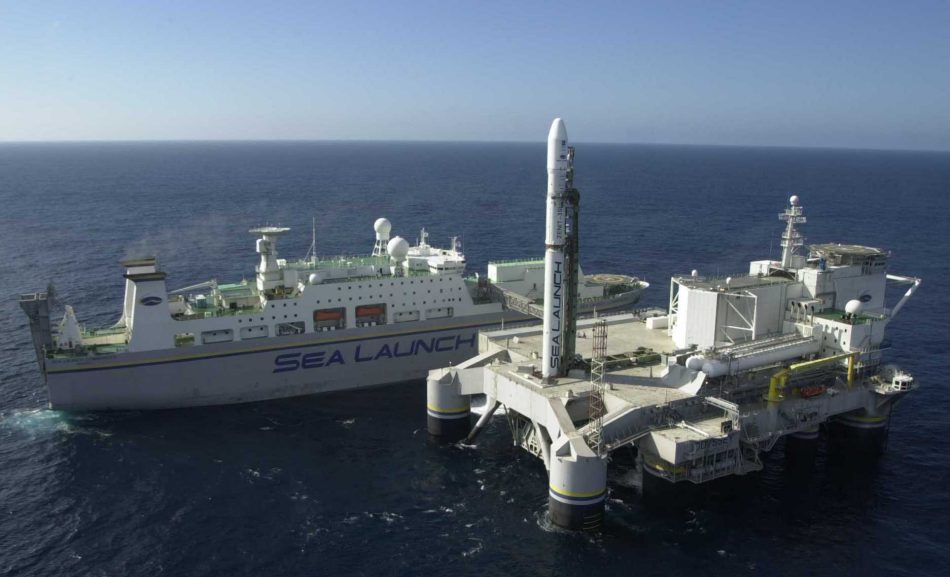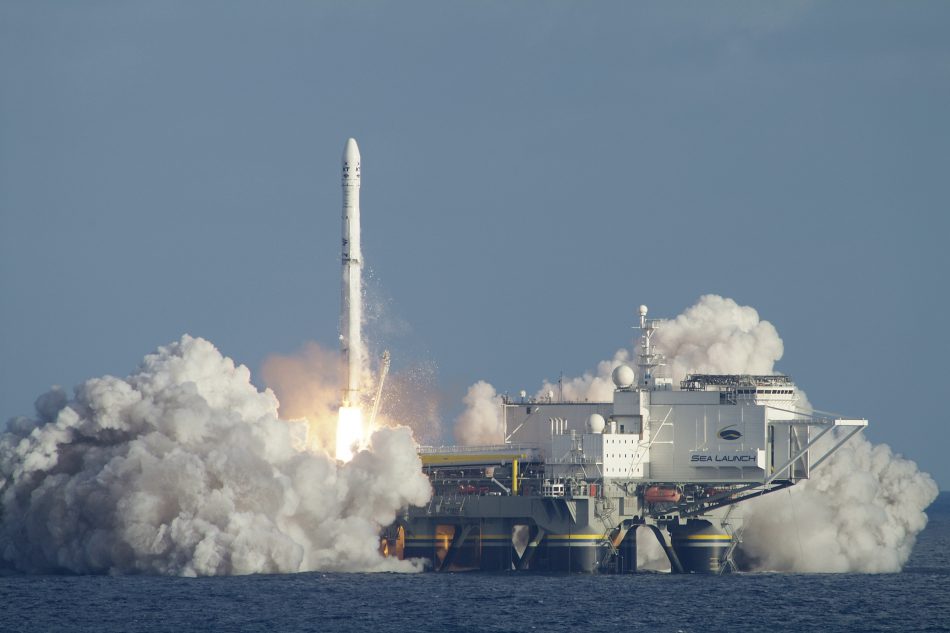RSC Energia
RKK Energiya (RSC Energia)
S.P. Korolev Rocket and Space Corporation Energia (Raketno-kosmicheskaya korporatsiya “Energiya” im. S. P. Koroleva), also known as RSC Energia or RKK Energiya and formerly OKB-1, is a Russian aerospace company that is a major producer of spacecraft, launch vehicles, rocket stages, ballistic missile and International Space Station (ISS) components. It built the world’s first intercontinental ballistic missile and the first artificial satellite, Sputnik and pioneered the development and operation of Soviet space stations including the Salyut series and Mir. The company is headquartered in the Moscow suburb of Korolev (formerly Kalingrad).
RKK Energia is the largest company and one of the key players in the Russian space industry. It is responsible for all operations involving human spaceflight and is the lead developer of the Soyuz and Progress spacecraft and the lead developer of the Russian end of the International Space Station (ISS), the service module Zvezda, the station’s control center and living quarters during the initial stage of human occupancy. In mid-2000 the company employed 22,000 to 30,000 people.
Other primary products include the Block DM-SL upper stage for the Ukrainian launch vehicles Zenit-3SL (used with Sea Launch) and Proton-M used with ILS) and the Yamal communications satellite system that is operated by Russia-based satellite operator Gazprom Space Systems.
RKK Energiya also owned a 25% stake of launch operator Sea Launch that was established in 1995 as a consortium of four companies;
- Aker Solutions (former Kvaerner) from Norway with 20% stake and providing the launch platform and commander vessel,
- RKK Energiya from Russia with 25% stake and providing the DM-SL rocket stage for the Zenit-3SL launch vehicle,
- Yuzhmash from Ukraine with 15% stake and providing the two stage Zenit-3SL rocket,
- Boeing Commercial Space from USA with 40% stake and providing systems integration and payloads.
Boeing managed the consortium with participation from the other shareholders. The first rocket was launched in March 1999 with the DirecTV-1R spacecraft of DirecTV.
In June 2009 Sea Launch filed for Chapter 11 bankruptcy protection and in August 2010, RSC Energia acquired a controlling interest of 85% in the company and resumed commercial launches in September 2011 with its last mission in May 2014 of the Eutelsat-3B satellite of satellite operator Eutelsat. In April 2018 the S7 Group purchased Sea Launch from RSC Energia in a 109 million USD transaction and will rename Sea Launch to SL Aerospace.
In 2017 RSC Energia is also engaged in the development of a new medium-class launch vehicle for launches from Baikonur and Vostochny Cosmodromes, as well as from the Sea Launch systems. The launch vehicle is designed to directly compete with SpaceX’s Falcon-9 rocket system.
History of RKK Energiya
The company traces its origin to a May 1946 decree that established the Soviet Union’s missile and space programs. The company was founded on 26 August 1946 and has been known successively as:
- Special Design Bureau number 1 of R&D Institute number 88 (NII88)
- TsKBEM (Central Design Bureau of Experimental Machine Building)
- NPO Energia
- P. Korolev RSC Energia.
Energia’s history is closely tied to the career of rocket designer Sergey P. Korolyov, widely recognized as the founder of the Soviet space program and its guiding genius until his death in 1966.
Korolev’s design bureau was, beginning with the first artificial satellite Sputnik 1 and the first manned spaceflight of Vostok 1, responsible for a major part of the Soviet space program.
Korolyov’s department was initially assigned to build improved versions of the German V-2 missile, but by the early 1950’s it began to develop its own ballistic missiles including the R-2 (U.S. Department of Defence code name SS-2) and R-5M (SS-3).
In 1950 the department was upgraded to an experimental design bureau (OKB), and in 1956 it formally separated from NII-88 and became the independent OKB-1.
RKK Energiya’s other main work during the 1970’s and early 1980’s focused on the Soviet Union’s early generation of space stations, a series of seven spacecraft called Salyut. In 1971 it built and launched its first Salyut, the world’s first space station. After recovering from a spate of failures, RKK Energiya mounted an unprecedented run of successful missions to the advanced Salyut 6 and 7 stations beginning in the late 1970’s. These stations were supplied by improved versions of Soyuz ferry spacecraft and Progress unmanned cargo tankers. A total of 26 crews, including several international ones, visited the two stations, setting consecutive records for endurance in space.
In 1986 RKK Energiya launched the core module for the Mir space station, which it subsequently expanded with a series of science and service modules. From 1989 to 1999, the firm kept the station continuously manned, an unequalled achievement. Building on its experience with Mir, RKK Energiya signed on in the early 1990’s as the main contractor for the Russian portion of the ISS. Its role, however, was gradually reduced, owing partly to stiff competition from another Russian company, Khrunichev, which assumed responsibility for the design and manufacture of a number of ISS modules.
In April 1994 Russian President Boris Yeltsin signed an order renaming the firm RSC Energia (Rocket-Space Corporation Energia) and partially privatizing the company.
After the dissolution of the Soviet Union, RSC Energia vigorously pursued international cooperative efforts. Successful ventures included partnerships with launch operators Sea Launch and International Launch Services (ILS), which RSC Energia provided its Block DM upper stage for boosting payloads to geostationary orbit. The company achieved some notoriety in the late 1990’s when it sought commercial customers for Mir in order to keep its single most important asset in operation. Continued financial support did not materialize and RSC Energia disposed of Mir in a guided reentry in 2001.
RSC Energia also owned a 25% of launch operator Sea Launch that filed for Chapter 11 bankruptcy protection in June 2009 due to weaker demand. The company acquired a controlling interest of 95% in the company in August 2010. As a result, the company planned to begin land-based launches from the Baikonur Cosmodrome in Kazachstan in early 2011, while sea-based launches to be resumed in September 2011 with its last mission in May 2014 of Eutelsat-3B of satellite operator Eutelsat.
In 2013 Boeing sued RSC Energia and design office PO Yuzhnoye since these companies refused to pay more than 350 million USD following the joint venture’s bankruptcy filing in 2009. The claim was settled in 2017 and the deal between RSC Energia and Boeing would allow the companies to engage in a number of joint ventures.
In August 2013, RSC Energia participated in preliminary studies of a super-heavy launcher conducted within the industry. The president of RSC Energia, Vitaly Lopota, confirmed that the work in the US on NASA’s Space Launch System (SLS) would influence the strategy and the timeframe for the development of a similar Russian vehicle.
In April 2018 the S7 Group purchased Sea Launch from RSC Energia in a 109 million USD transaction and will rename Sea Launch to SL Aerospace. The company also announced that Russia’s RSC Energia and Roskosmos State Corporation and the Ukraine-based Zenit manufacturer Yuzhmash would be partners in Sea Launch, which would be managed from Moscow by the S7 KTS Company, also known as S7 Space.
All trademarks, logos and images mentioned and showed on this page are property of their respective owners.
Resources
www.energia.ru
www.russianspaceweb.com
www.wikipedia.org
www.britannica.com
www.sky-brokers.com
www.spacenews.com edition August 26th, 2016
www.reuters.com edition February 4th, 2013
www.sputniknews.com edition April 26th, 2017
www.advanced-television.com edition April 28th 2017


